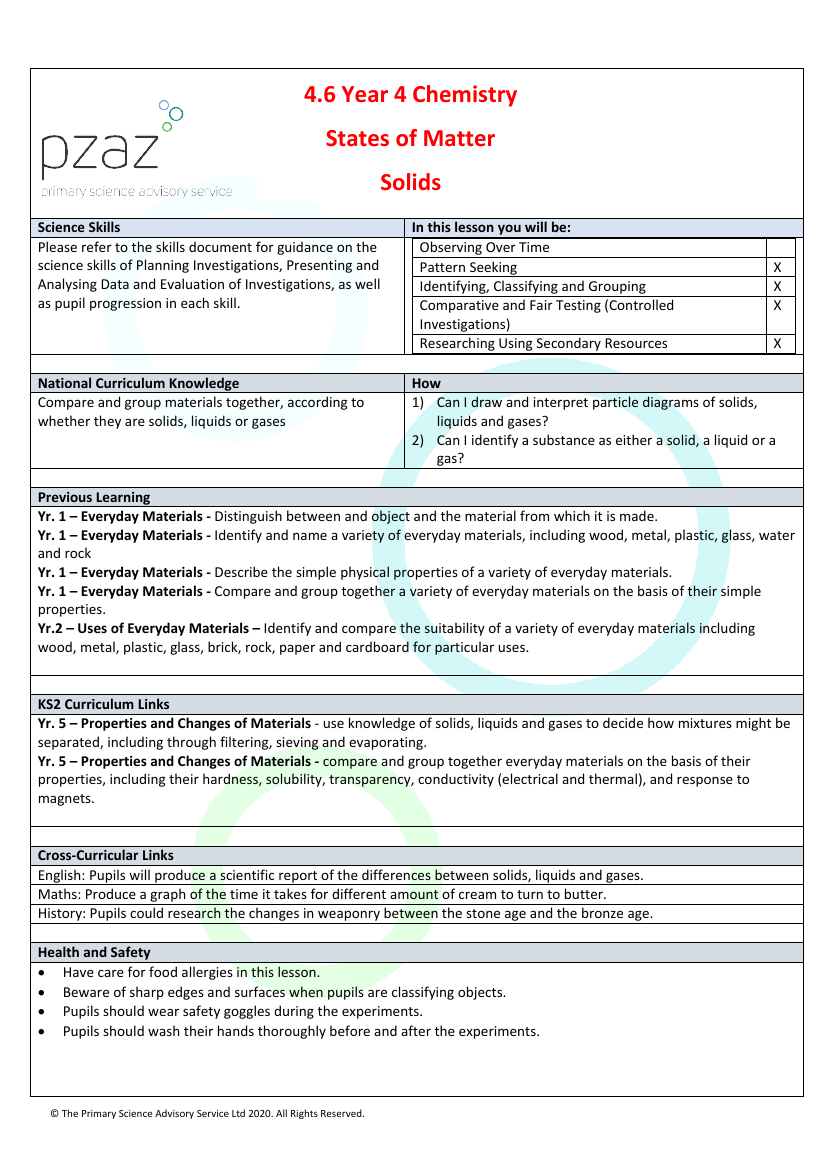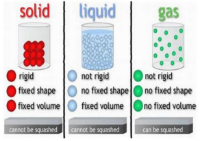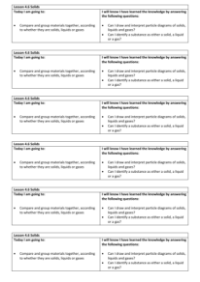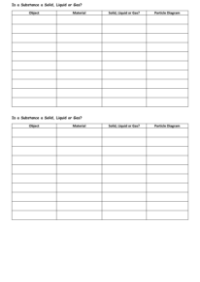Solids - Lesson Plan

The lesson plan provided by The Primary Science Advisory Service Ltd delves into the fascinating world of matter, specifically focusing on solids. Aimed at Year 4 students, the lesson is part of a series that builds on previous years' understanding of materials and their properties. In this session, students will learn to compare and group materials based on their state—solid, liquid, or gas—using the National Curriculum guidelines. They will explore core scientific skills like observing over time, pattern seeking, classifying, and conducting comparative tests. The lesson also touches on how to draw and interpret particle diagrams, enhancing their ability to identify substances in different states of matter. Cross-curricular links are established with English, Maths, and History, where students will write scientific reports, graph data, and explore historical changes in materials used for tools and weapons. Health and safety considerations are highlighted, including allergy awareness and the use of protective equipment during experiments.
Students will engage in hands-on activities to deepen their understanding of particles and how they form the building blocks of all matter. They will tear paper to visualize the concept of particles, create particle diagrams, and classify everyday objects by their state of matter. An intriguing experiment to make butter from cream will allow students to observe the change of state from liquid to solid, while understanding the role of energy in this transformation. Throughout the lesson, they will be encouraged to ask questions and reflect on their observations. The plenary session will consolidate their learning, asking them to draw particle diagrams for different substances and classify them as solids, liquids, or gases. This lesson is designed to correct common misconceptions about matter, such as the unchanging size of particles and the ability of different states of matter to react with each other, thus providing a comprehensive understanding of solids and their place in the physical world.






